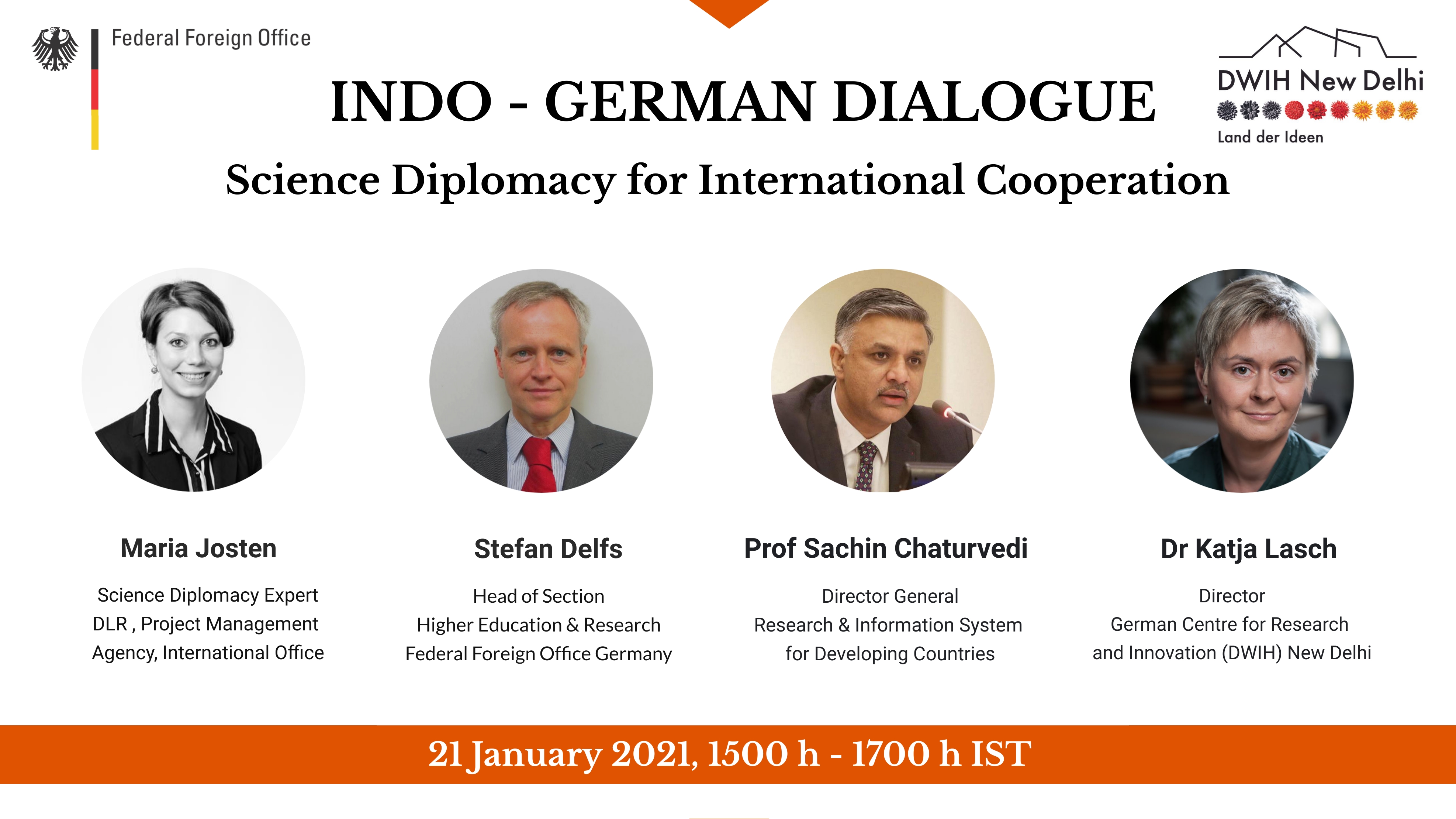Science Diplomacy for International Cooperation
 © iStockphoto
© iStockphoto
International research and science cooperation are driven by researchers, who focus on discovery. Since the last decade an increasing need for the integration of science cooperation in international relations has been evolving. In this context the concept of science diplomacy is also developing. Today the term science diplomacy is widely used to describe a set of activities at the intersection of science, technology and foreign policy. Science diplomacy is manifold and encompasses various approaches: diplomacy for science, science for diplomacy and science in diplomacy.
Below is a list of useful links of platforms, policy papers, and other resources, including recordings from DWIH New Delhi’s events on science diplomacy in India and Germany.
Draft 5th National Science, Technology, and Innovation Policy (India)
India’s 5th Science, Technology, and Innovation Policy (STIP) aims to be decentralized, evidence-informed, bottom-up, experts-driven, and inclusive. Its latest draft is open for public suggestions, inputs, and comments till 31 January 2021.
Forum for Indian Science Diplomacy (FISD)
The science diplomacy programme funded by the Department of Science and Technology (DST) India.
Call for Papers by the Science Diplomacy Review (SDR)
An open access journal published by the Forum for Indian Science Diplomacy (FISD)
Strategy Paper on Science Diplomacy by the Federal Foreign Office, Germany
The strategy paper on Science Diplomacy published by the Federal Foreign Office, Germany aims to anchor cooperative relationships involving foreign policy, science, citizen science, and science communication in sustainable international processes through an engaged civil society.
More (In German)
Asia-Pacific Strategy of the Federal Foreign Office, Germany
The Federal Government’s policy guidelines for the Indo-Pacific region are a forward-looking, strategic guide for shaping Germany’s foreign policy on the Indo-Pacific.
Education and Science Diplomacy Policy of the Federal Ministry for Research and Education, Germany (BMBF)
The education and science policy of the BMBF is based on the three pillars of connect, inform, and enable.
Policy paper of the BMBF on Science Communication
The policy paper of the BMBF on Science Communication gives an insight into the measures for improvement of the framework conditions for science communication.
More (only in German)
Prize for Education and Science Diplomacy from the BMBF
The BMBF awards prizes to pioneers in education and science diplomacy.
More (In German)
Public voting for the Prize for Education and Science Diplomacy from the BMBF (In German)
Performance Monitoring Asia-Pacific Research Area
To obtain an evidence base for the strategic further development of cooperation in the Asia-Pacific region, the Federal Ministry for Education and Research initiated the Performance Monitoring of the Asia-Pacific Research Area. Together with the Fraunhofer Institute for Systems and Innovation Research (ISI) and the German Academic Exchange Service (DAAD), the GIGA investigates the R&D landscape in the region.
S4D4C: Using Science for/in Diplomacy for Addressing Global Challenges
The overall objective of S4D4C is to support current and future European science diplomacy for the benefit of European capacities, EU foreign policy goals and especially the development of solutions for global challenges.
New Version of the S4D4C Policy Report “Calling For A Systemic Change: Towards a European Union Science Diplomacy for Addressing Global Challenges”
Last May 2020, S4D4C published the policy report entitled “Calling for a Systemic Change: Towards a European Union Science Diplomacy for Addressing Global Challenges”. Together with the publication of this policy report, S4D4C opened a public call for suggestions and recommendations to improving the document with the 10th October 2020 as the deadline. With the public call, feedback from external specialists in science diplomacy was gathered and it has now been implemented to the second and final version of the policy report.
Download the report here!
Disclaimer: The above list is indicative and neither exclusive nor exhaustive. The information provided on this page has been sourced from third party websites. The DWIH is not liable for the content of any websites run by third parties. The organizations listed here have not been asked for their permission to feature this information. By featuring these reports the DWIH New Delhi does not promote these organizations.

